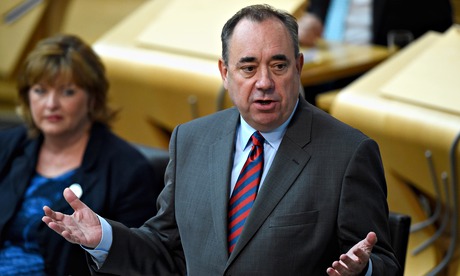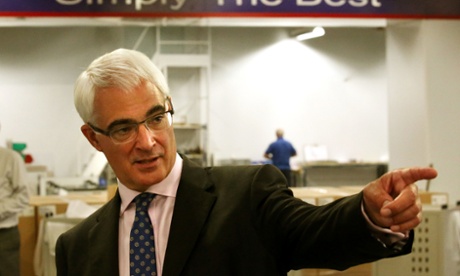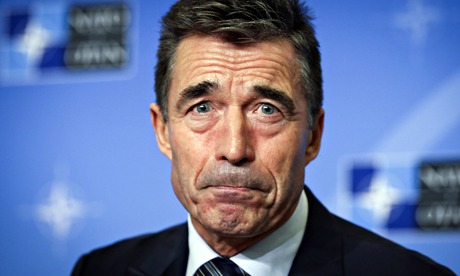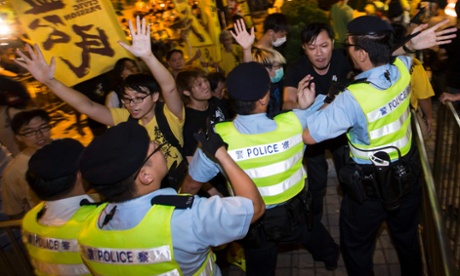
Since
the sudden appearance of the extremist Sunni Islamic State (IS), the
group has seized headlines with a shocking level of blood-letting and
cruelty - but can its savagery be explained, asks Fawaz A Gerges.
Islamic State has become synonymous with viciousness -
beheadings, crucifixions, stonings, massacres, burying victims alive and
religious and ethnic cleansing.While such savagery might seem senseless to the vast majority of civilised human beings, for IS it is a rational choice. It is a conscious decision to terrorise enemies and impress and co-opt new recruits.
IS adheres to a doctrine of total war without limits and constraints - no such thing, for instance, as arbitration or compromise when it comes to settling disputes with even Sunni Islamist rivals. Unlike its parent organisation, al-Qaeda, IS pays no lip service to theology to justify its crimes.
The violence has its roots in what can be identified as two earlier waves, though the scale and intensity of IS' brutality far exceeds either.
The first wave, led by disciples of Sayyid Qutb - a radical Egyptian Islamist regarded as the master theoretician of modern jihadism - targeted pro-Western secular Arab regimes or what they called the "near enemy", and, on balance, showed restraint in the use of political violence .
Beginning with the assassination of Egyptian President Anwar Sadat in 1980, this Islamist insurgency dissipated by the end of the 1990s. It had cost some 2,000 lives and saw a large number of militants head to Afghanistan to battle a new global enemy - the Soviet Union.
'Killing machine' The Afghan jihad against the Soviets gave birth to a second wave, with a specific target - the "far enemy", or the United States and, to a lesser extent, Europe.
It was spearheaded by a wealthy Saudi turned revolutionary, Osama Bin Laden.
Bin Laden went to great lengths to rationalise al-Qaeda's attack on the US on 11 September 2001, calling it "defensive jihad", or retaliation against perceived US domination of Muslim societies.
 Hundreds of jihadists are reported to have swelled IS' ranks in recent weeks
Hundreds of jihadists are reported to have swelled IS' ranks in recent weeks
This kind of justification, however, carries no weight with IS leader Abu Bakr al-Baghdadi, who cannot care less what the world thinks of his blood-letting.
In fact, he and his cohorts revel in displaying barbarity and coming across as savage.
In contrast to the first two waves, IS actually stresses violent action over theology and theory, and has produced no repertoire of ideas to sustain and nourish its social base. It is a killing machine powered by blood and iron.
Going beyond Bin Laden's doctrine that "when people see a strong horse and a weak horse, by nature they will like the strong horse", al-Baghdadi's "victory through terrorism" signals to friends and foes that IS is a winning horse. Get out of the way or you will be crushed; join our caravan and make history.
Increasing evidence shows that over the past few months, hundreds, if not thousands, of diehard former Islamist enemies of IS, such as the al-Nusra Front and the Islamic Front, answered al-Baghdadi's call.
'Shock-and-awe' IS' sophisticated outreach campaign appeals to disaffected and deluded young Sunnis worldwide because it is seen as a powerful vanguard that delivers victory and salvation.
Far from abhorring the group's brutality, young recruits are attracted by its shock-and-awe tactics against the enemies of Islam.

Muslim men living in Western countries join IS and other extremist groups because they feel part of a greater mission - to resurrect a lost idealised type of caliphate and be part of a tight-knit community with a potent identity.
Initially, many young men from London, Berlin and Paris and elsewhere migrate to the lands of jihad to defend persecuted co-religionists, but they end up in the clutches of IS, doing its evil deeds, such as beheading innocent civilians.
The drivers behind IS' unrestrained extremism can be traced to its origins with al-Qaeda in Iraq, led by Abu Musab al-Zarqawi, who was killed by the Americans in 2006.
Not unlike its predecessor, IS is nourished on an anti-Shia diet and visceral hatred of minorities in general, portraying itself as the spearhead of Sunni Arabs in the fight against sectarian-based regimes in Baghdad and Damascus.
Al-Zarqawi and al-Baghdadi view Shias as infidels, a fifth column in the heart of Islam that must be wiped out - a genocidal worldview.
Following in the footsteps of al-Zarqawi, al-Baghdadi ignored repeated pleas by his mentor Ayman al-Zawahiri, head of al-Qaeda, and other top militants to avoid indiscriminate killing of Shia and, instead, to attack the Shia-dominated and Alawite regimes in Iraq and Syria.
Sights on US? By exploiting the deepening Sunni-Shia rift in Iraq and the sectarian civil war in Syria, al-Baghdadi has built a powerful base of support among rebellious Sunnis and has blended his group into local communities.
He also restructured his military network and co-opted experienced officers of Saddam Hussein's disbanded army who turned IS into a professional sectarian fighting force.
 IS leader Abu Bakr al-Baghdadi has threatened to kill US troops if they come to Iraq
IS leader Abu Bakr al-Baghdadi has threatened to kill US troops if they come to Iraq
At the height of Israeli bombings of Gaza in August, militants on social media criticised IS for killing Muslims while doing nothing to help the Palestinians.
IS retorted by saying the struggle against the Shia takes priority over everything else.
Now that the US and Europe have joined the conflict against IS, the group will use all its assets in retaliation, including further beheading of hostages. There is also a growing likelihood that it will attack soft diplomatic targets in the Middle East.
While it might want to stage a spectacular operation on the American or European homeland, it is doubtful that IS currently has the capabilities to carry out complex attacks like 9/11.
A few months ago, in response to chatter by his followers, al-Baghdadi acknowledged that his organisation was not equipped to attack the Americans at home.
He said though that he wished the US would deploy boots on the ground so that IS could directly engage the Americans - and kill them.







































